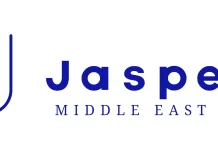In an increasingly globalized world, the movement of people, businesses, and institutions across international borders has become a common occurrence. As a result, there is a growing need for the legalization and authentication of documents to ensure their validity and acceptance in foreign countries.
This process often involves Apostille Arabic translation, a crucial service that facilitates international recognition and legal compliance. In this article, we will delve into the significance of Apostille Arabic translation, its applications, and why it is a vital component of international document authentication.
Comprehending Apostille and Its Purpose
The term “Apostille” is derived from the French word for “notation” or “annotation.” An Apostille is a certificate issued by a competent authority in a country that is a party to the Hague Convention of 1961. This certificate is attached to a document to verify its authenticity and to ensure that it will be recognized and accepted by authorities in another member country without further legalization. Essentially, it streamlines the process of document authentication for international use.
The Apostille process is particularly important for documents like birth certificates, marriage certificates, academic transcripts, and legal contracts when they need to be used in countries that are not part of the Apostille Convention.
Apostille Arabic Translation: Why Is It Necessary?
When dealing with documents in Arabic, Apostille Arabic translation plays a crucial role in ensuring international recognition. Here’s why it is necessary:
- Language Barrier:
In countries where Arabic is not the official language, government authorities and institutions may require that documents be presented in a language they understand. Arabic documents must be translated into the official language(s) of the destination country to ensure comprehension.
- Legal Compliance:
For a document to receive an Apostille, it must meet certain legal criteria, including being in the official language of the issuing country. Apostille Arabic translation ensures that the document adheres to these requirements.
- Accuracy and Clarity:
Translations must accurately convey the content of the original document while maintaining its legal terminology. Errors or misinterpretations can lead to rejection by foreign authorities.
Applications of Apostille Arabic Translation
Apostille Arabic translation is essential in various scenarios:
- Immigration and Visa Processing:
Individuals relocating to Arabic-speaking countries may need their documents, such as birth certificates, marriage certificates, or educational records, to be translated and Apostilled for visa or immigration purposes.
- Legal Proceedings:
In cases involving international litigation or legal transactions, legal documents may require Apostille Arabic translation to ensure their validity in foreign courts.
- Academic Pursuits:
Students seeking to enroll in academic institutions in Arabic-speaking countries often require translated and Apostilled academic records.
- Business and Trade:
Companies engaged in international trade may need contracts, agreements, and legal documents to be Apostilled and translated into Arabic or other languages.
Why Professional Apostille Arabic Translation Matters
Apostille Arabic translation is a complex task that demands precision and expertise. Here’s why professional translation services are crucial:
- Linguistic Proficiency:
Professional translators possess in-depth knowledge of both Arabic and the target language(s). They ensure accurate translation while preserving the legal and cultural nuances of the document.
- Legal Expertise:
Apostille Arabic translation often involves legal terminology and concepts. Professional translators with legal expertise understand the specific requirements for the document to meet legal standards.
- Certification:
Many countries require translated documents to be certified by a professional translator. Certified translations provide additional assurance of accuracy and authenticity.
- Timeliness:
Professional translation services adhere to deadlines, ensuring that translated documents are ready when needed, even for urgent matters.
- Privacy and Confidentiality:
Professional translators adhere to strict confidentiality standards, safeguarding sensitive information contained in the documents.
In Conclusion
Apostille Arabic Translation is an indispensable service that simplifies the process of international document legalization. Whether for personal, legal, academic, or business reasons, having documents Apostilled and translated ensures their recognition and acceptance in foreign jurisdictions.
Professional Apostille Arabic translation services provide the expertise, accuracy, and legal compliance required for seamless international transactions. As our world continues to connect across borders, Apostille Arabic translation remains a critical tool for individuals and organizations navigating the complexities of global documentation and authentication.












